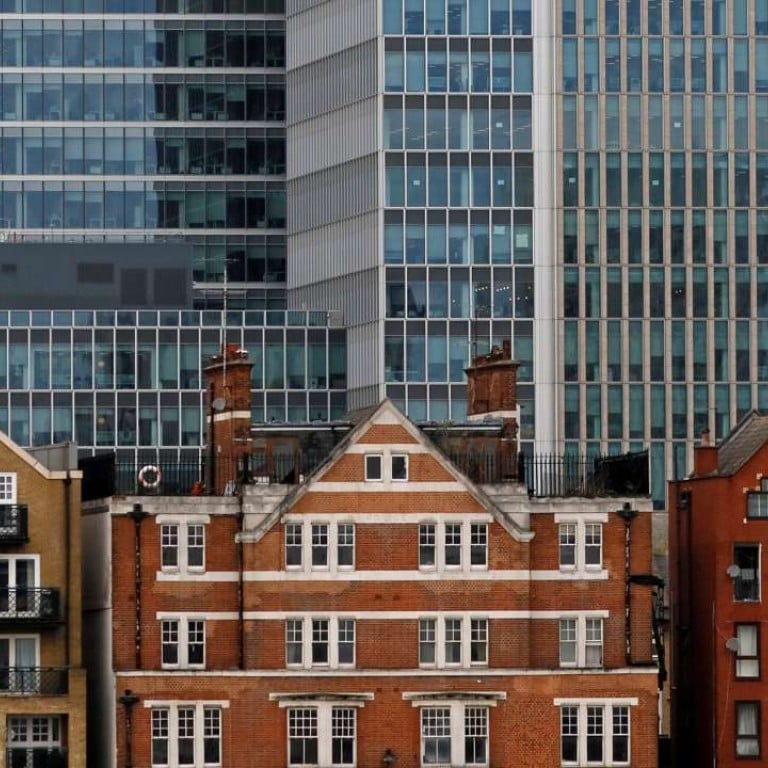
Hong Kong’s British property owners see pros and cons to Brexit
Cheaper university costs also seen as a silver lining to any leave vote
Hong Kong property investors are mixed in their opinion over the consequences of a Brexit on Thursday.
Some remain worried the value of their assets could drop, by 10 per cent suggest estimates, as a result of a devaluation of sterling. While others view a possible exit of the EU as an opportunity to buy, as prices inevitably fall.
There have already been reports of a rush, too, by parents of Chinese students at school in the UK to exchange their sterling, which has already fallen over 2 per cent against the greenback.
While again, a drop in the value of the pound after any Brexit, could be good news for parents already supporting children studying in Britain, as they would get more pounds for their Hong Kong dollars.
Andrew Fung, executive director of Hang Seng Bank, thinks any exit vote could see sterling’s value drop to US$1.20 against the current US$1.44, while a vote to remain might boost the currency’s value to nearer US$1.50.
“Hong Kong investors will suffer foreign exchange losses if they’ve invested in UK property and other assets,” he said.
Brexit will weigh negatively on the UK property market for years to come.
Stephen Innes, a senior trader at Oanda Asia Pacific, said should Britain vote to exit, the pound could be expected to drop by around a tenth in value.
“A wave of selling on both European and UK equity markets could spread contagion globally”, he added, and that could also have a negative effect on the Chinese yuan.
“Brexit will weigh negatively on the UK property market for years to come.
“Even if the UK stays in, investors may look to exit for self-preservation, and head towards other European destinations.
“If the UK leaves, the fallout from a weaker sterling will result in massive capital depreciation,” Innes said.
“People will think twice about buying in the UK, and some will even look at capital preservation and leaving altogether.”
Other Hong Kong investors, however, aren’t so gloomy.
“If there really is a Brexit, and sterling and property fall in value, we plan to buy one more property in Britain as a long-term investment,” said one British landlord, who only wanted to be identified as Mrs Wong.
“It is always good to buy low, and sell high.”
She and her husband work in Hong Kong but own an investment property in London, which is mortgaged but rented out, giving the family a regular monthly income.
“A fall in sterling would be good and bad news for us.
“Our monthly mortgage, after converting Hong Kong dollars into pounds, would be reduced.
“But then again, the rental income we would receive would also be worth less, when that’s converted back into dollars,” said Wong.
“We believe property prices would fall after any Brexit, so that could offer us good opportunities to buy. As a long-term investment, we still believe UK property prices will rise, even if Britain is not part of the EU,” she said.
A survey of just over a thousand Hong Kong residents, by IP Global and YouGov in January this year, found the UK was still one of the three most-popular markets for Hong Kong buyers, along with Japan and Australia.

“If the UK votes to leave the EU, it will take time for investors to regain comfort, but we have confidence in the resilience and strength of the UK market, longer term.
“The Brexit debate is already impacting foreign exchange markets, which are susceptible to the influence of immediate change and risk,” Pound said.
Sterling hit a seven-year low against the US dollar after former London mayor Boris Johnson’s pro-Brexit announcement earlier this year, and a ‘leave’ victory would see it fall further, said Pound.
But he agrees with Wong, that some overseas buyers would be likely to take advantage of the currency’s short-term dip, and low interest rates.
“The UK has always been top of our investors’ wish lists, and London property remains one of the top global investments spots,” he said.
“For buyers looking at the UK right now, and in future, the years ahead look to be just as favourable.
“So we suggest Hong Kong buyers in the UK continue to watch the market for future emerging opportunities.”
The falling pound in recent days, meanwhile, has sent Cecilia Chan rushing to change Hong Kong dollars into sterling.
Getting ready to send her son to university in Liverpool, she said there was a queue at her local bank of parents doing similar.
Her son needs to pay £12,000 (HK$133,645) a year in fees, and if the pound did fall 10 per cent after a Brexit, she could save around HK$13,500 a year, she works out.
“A falling pound would be a good news for many parents who have children studying in Britain, as they would need to pay less,” she said.
Timothy Lo, a managing director at French private bank CIC Investor Services, said the banking sector has prepared for any eventuality.
“The worst case scenario is Britain leaves the EU, and that triggers a deleveraging of risky assets.
“We have already seen an increase in demand for Japanese yen, since the currency is seen as a safe haven at times of heightened risk,” Lo said.
“As a private banker, we need to check our clients’ leverage position, to prepare a big sell off in risky assets such as equities that might trigger a margin call.
“I’d say ‘be prepared to have some cushions ready for asset price volatility’.”
Rex Auyeung, the Asia chairman of Principal Financial, said if the vote goes for Britain to leave the EU, the effects will be two-fold: a weakened pound and an equity market sell-off.
“And in the foreseeable future, such uncertainty would be bad for business,” Auyeung said.
“As this discussion has been going on for months, I suspect financial institutions would have taken action to reflect their respective projections.”


